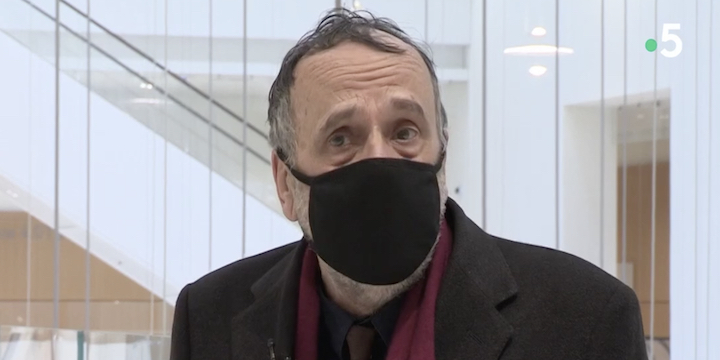Between April 2020 and March 2021, nearly 25,000 people died in nursing homes or in medico-social establishments from the coronavirus. That is to say nearly a third of deaths due to the pandemic in France.
Bereaved relatives
This March 3 at the Tribunal de Grande Instance in Paris, families are awaiting answers. Raphaël Caumission lost his mother in nursing home on April 4.
” The day before her death, a phone call from the doctor who told me: “We put her on a bed on the floor, we put a probe to supply her with water so that the kidneys don’t get blocked, but it’s okay. go, I administered two drops of rivotril on her mouth. The next day she was deceased. ”
Bereaved families, caregivers, patient associations, they are launching a common action to understand what happened.
“What I’m also here for today is that we find ourselves children with enormous guilt,” adds Raphaël Caumission. That is to say, our parents would have saved us from everything, from the fire of war, from everything, but we children did not manage to save our parents. We thought we would put them in safety in an nursing home and it’s just the opposite happened. ”
To read also: “The nursing homes alone in the face of the coronavirus epidemic”
Transparency requirement
Thanks to this approach, the applicants hope to force the establishments and the public authorities to take stock of the management of this first murderous wave.
“Us today what we are asking for isis transparency, explains Sabrina Deliry, co-founder of the Circle of Caregivers in Ehpad. Collectively, we say to ourselves that if we don’t learn the lessons from the first wave, if we don’t take a real photo, if we don’t highlight responsibilities, how do you want to ensure that this does not happen again? It is not possible. “
To read also: “Ehpad: visits maintained during confinement”
Silence from institutions and authorities
Where were the masks? Have the sick been sorted? Was rivotril, a powerful sedative, administered to nursing home residents instead of treating them? Everyone is counting on the judge’s support for answers. They hope to bring the health authorities, health establishments and mass distribution out of their silence.
” If they refuse to share this information, asks Me Christophe Lèguevaques, the applicants’ lawyer, maybe they have something to hide. That is why the judge must intervene to force them to give the information we are looking for. For example, we asked each nursing home, can you tell us what stocks of Rivotril you had, when did you buy them, when did you use them, how many people died, how many did you have? done any tests, do you have the consent of these people etc… ”
The judge will decide whether or not the authorities should provide this information. They could be used as evidence in possible future trials, civil or criminal.
To read also: “Ehpad:” a new confinement would no longer be tolerated “”
 Cherry tomatoes contaminated with salmonella: 92 sick and 1 dead
Cherry tomatoes contaminated with salmonella: 92 sick and 1 dead  A better coaching method can make a person grow
A better coaching method can make a person grow  What is the method to prevent diabetes in children?
What is the method to prevent diabetes in children?  What are the effective factors in causing stomach ulcers?
What are the effective factors in causing stomach ulcers?  Why do embarrassing memories seem to appear at night?
Why do embarrassing memories seem to appear at night?  The amazing link between SARS-CoV-2 infection and newly started diabetes
The amazing link between SARS-CoV-2 infection and newly started diabetes  WHO says monkey pox is not a global emergency right now
WHO says monkey pox is not a global emergency right now  Single cell RNA sequencing uncovers new mechanisms of heart disease
Single cell RNA sequencing uncovers new mechanisms of heart disease  Hepatitis of unknown origin: 3 new deaths and 228 cases worldwide
Hepatitis of unknown origin: 3 new deaths and 228 cases worldwide 